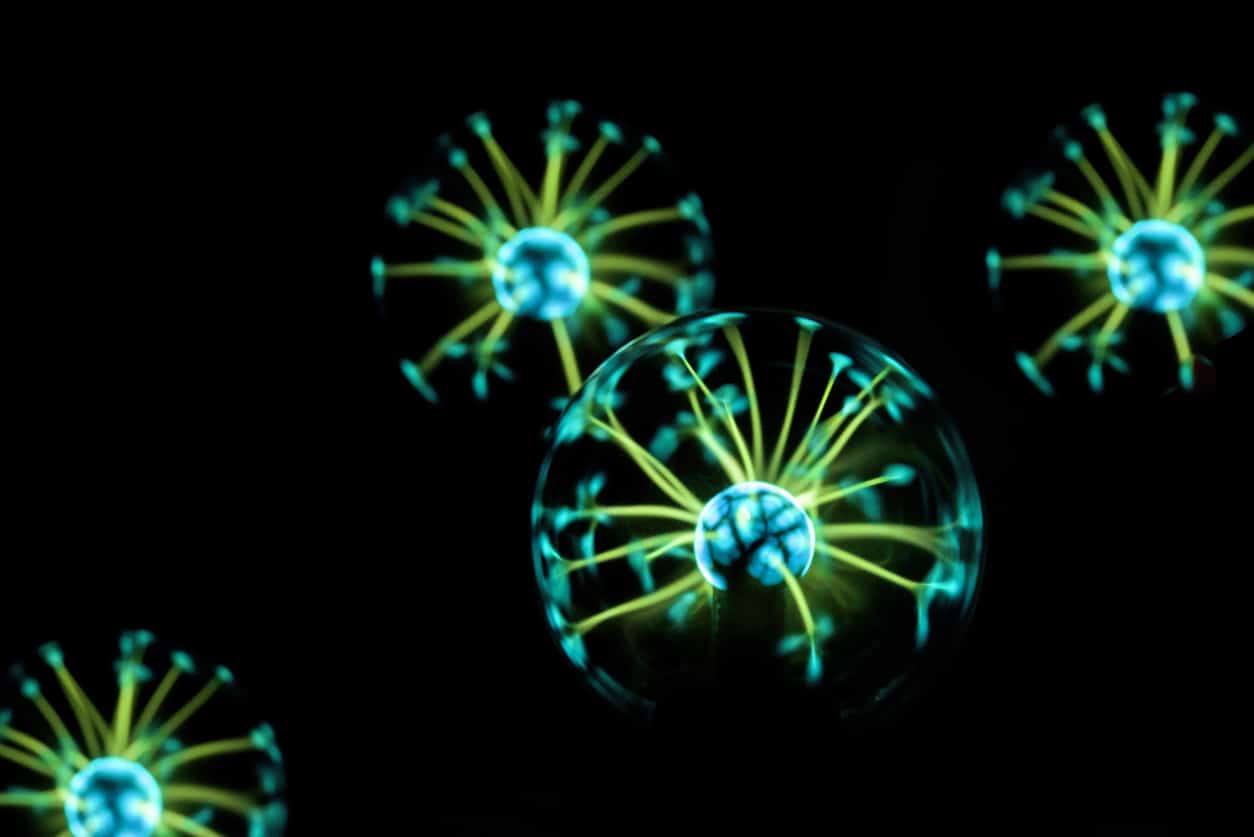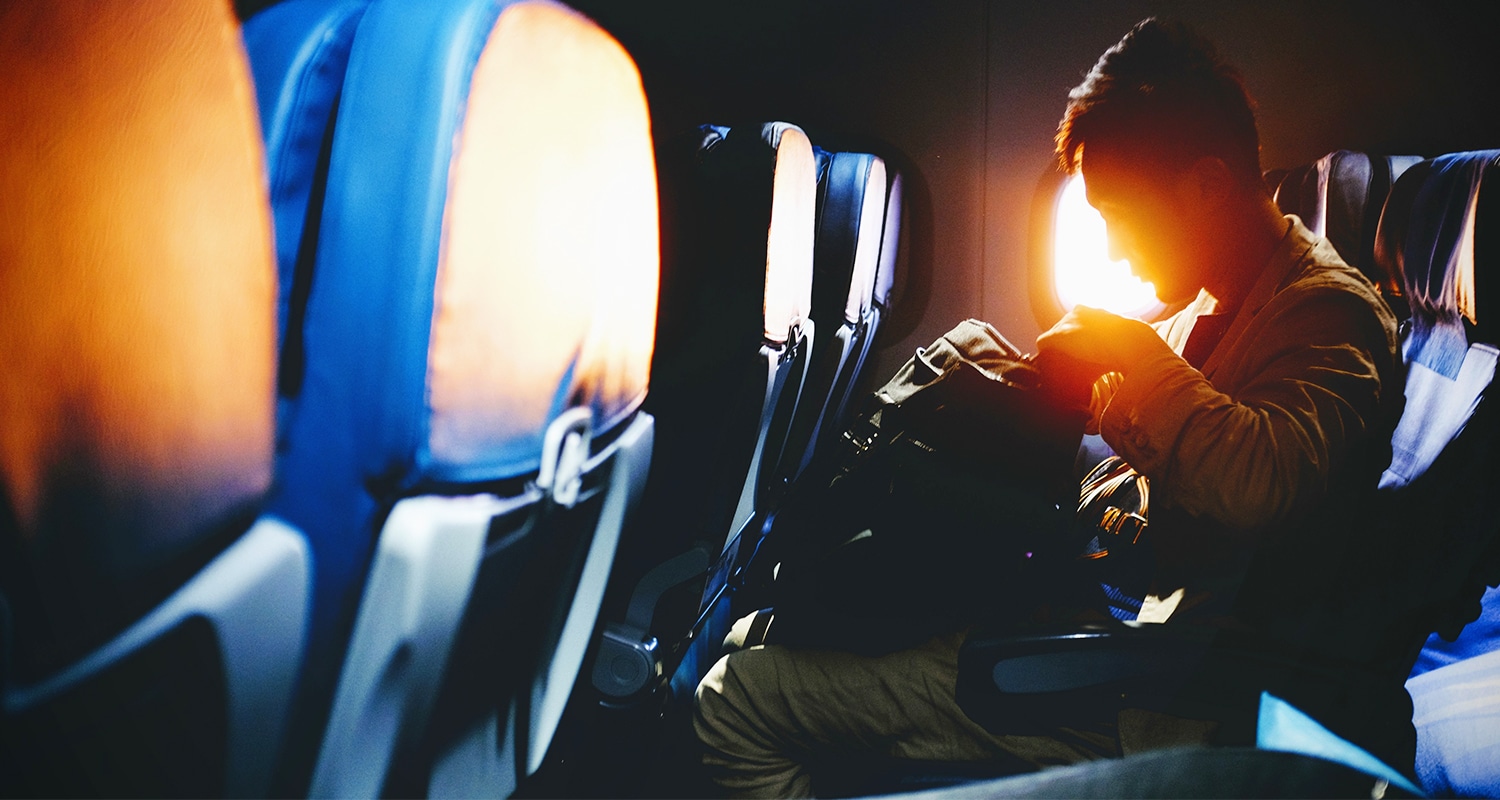
[tldr]
- Flying is harder on your body than you might think. Time zone changes, fluorescent lighting, altitude exposure, and low-quality air all have a big impact on your performance. Fortunately, there are several hacks you can use to avoid jet lag.
- Blue light-blocking glasses will protect your mitochondria (the power plants of your cells) from the fluorescent bulbs on airplanes and keep your sleep schedule from shifting.
- The right supplements can help you deal with the decreased oxygen you get on airplanes and prevent jet lag symptoms.
- Fasting while you fly helps avoid jet lag by making your brain more adaptable to time zone shifts.
[/tldr]
Flying is harder on your body than you might think. The combination of time zone changes, crappy fluorescent lighting, low-quality air, and high-altitude exposure can really screw up your biology and leave you jet-lagged when you land.
The good news is that you can avoid jet lag. For me, hacking air travel is a necessity: I fly at least 100 times a year, often between time zones, and over time I’ve found several powerful hacks to minimize the stress of flying and prevent jet lag symptoms.
Air travel doesn’t have to mess with your biology. Here are six things you can do to avoid jet lag when you fly.
Block junk light with TrueDark glasses

On the other hand, the wrong light will screw up your biology in a major way. Most airplanes use fluorescent bulbs, which are the light equivalent of junk food. Fluorescent bulbs take away all the biologically useful light spectrums and replace them with unnaturally concentrated blue light — much more than your body has evolved to handle. That’s why airplane lighting can feel so harsh.
Excessive blue light damages your mitochondria, which impairs your ability to make energy for your cells.[ref url=”https://www.ncbi.nlm.nih.gov/pubmed/15797866″] If you’re taking an evening flight or a red-eye, fluorescent bulbs are even worse: bright blue light tells your body what time it is, and nighttime exposure scrambles your sleep schedule by interfering with your melatonin production.[ref url=”https://www.ncbi.nlm.nih.gov/pmc/articles/PMC5473809/”] That’s one reason why flying messes with your sleep-wake cycle.
Junk airplane light was messing with my biology so much that I started TrueDark, a company that makes blue light-blocking glasses specifically for hacking jet lag and sleep quality issues.
The TrueDark Twilight glasses block even the harshest blue light. If you pick only one jet lag tip from this list, choose blue-light-blocking glasses, whether you’re traveling between time zones or not. You’ll see a huge reduction in jet lag symptoms like disrupted sleep, mood swings, concentration issues and daytime fatigue.
Wear compression gear when you fly
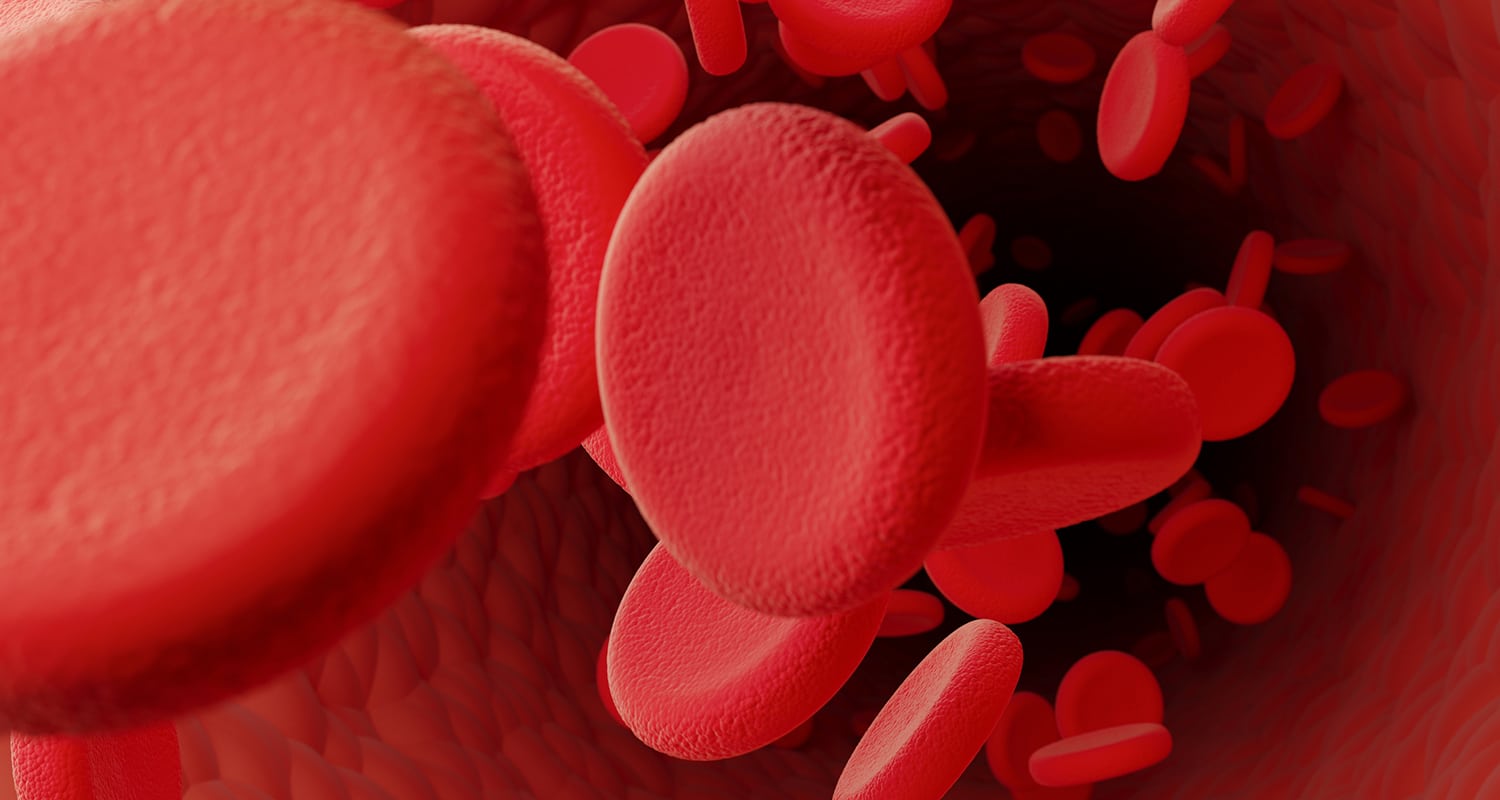
I started out just wearing compression socks. Then I tried full compression gear — socks, pants, and a top — and found I was much less puffy and inflamed after flying. If you don’t want to do full-body compression, at least pick up some compression socks. Fatal blood clots are not good for your performance.
These are my go-to compression socks for every trip.
Avoid jet lag with these supplements

Airplanes have low air pressure, which decreases your ability to absorb oxygen from the air.[ref url=”https://www.ncbi.nlm.nih.gov/pubmed/11973496″][ref url=”https://www.ncbi.nlm.nih.gov/pubmed/22490871″] Your lungs don’t adapt, which means the longer your flight, the more oxygen-deprived you get.
Your mitochondria use oxygen to make energy. When they don’t have enough oxygen to work with, they ramp down energy production, and you end up with brain fog, headaches, tiredness, and inflammation. You don’t feel well, you can’t focus, and you want to sleep when it’s the middle of the day.
The right supplements will make your mitochondria more efficient and keep your energy production higher, which can go a long way toward preventing jet lag. Here’s what I use to keep my mitochondria strong and avoid jet lag symptoms when I fly:
– KetoPrime contains oxaloacetate, an essential metabolic compound that powers your mitochondria. When your body has plenty of oxaloacetate, your mitochondria become more efficient and are better at producing energy.[ref url=”https://www.ncbi.nlm.nih.gov/pubmed/21604001″] I always take KetoPrime before I fly, and I feel the difference.
– Unfair Advantage contains CoQ10 and PQQ, which work together to help you power up your existing mitochondria and grow brand new ones.[ref url=”https://www.ncbi.nlm.nih.gov/pubmed/17029795″] I take an Unfair Advantage every two hours during my flight.
These three supplements will protect your mitochondria when you’re on an airplane and leave you feeling more like yourself when you land.
Stay hydrated during your flight

Fast while flying
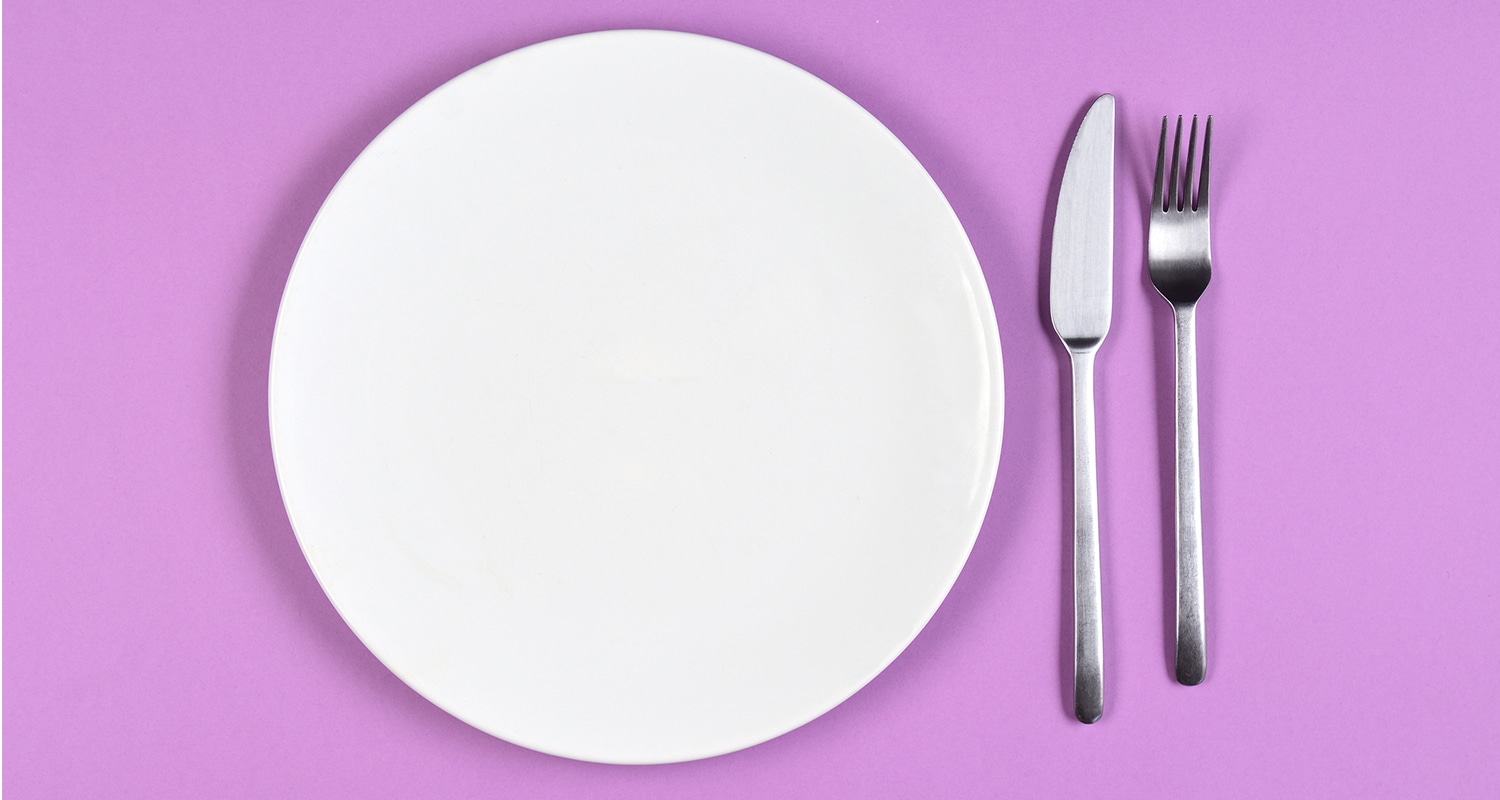
When you eat, your brain makes a tight link between your sleep and light-dark cycles. Fasting activates a part of your brain called the dorsomedial nucleus that makes you less rigid with your sleep schedule.[ref url=”http://science.sciencemag.org/content/320/5879/1074″] In a fasted state, you’re more able to reset your sleep schedule to match your environment, meaning you can adjust to time differences and jet lag with ease.
If you aren’t going to fast, at least pack your own food when you fly. Airplane meals won’t do your body any favors.
Ground yourself when you land
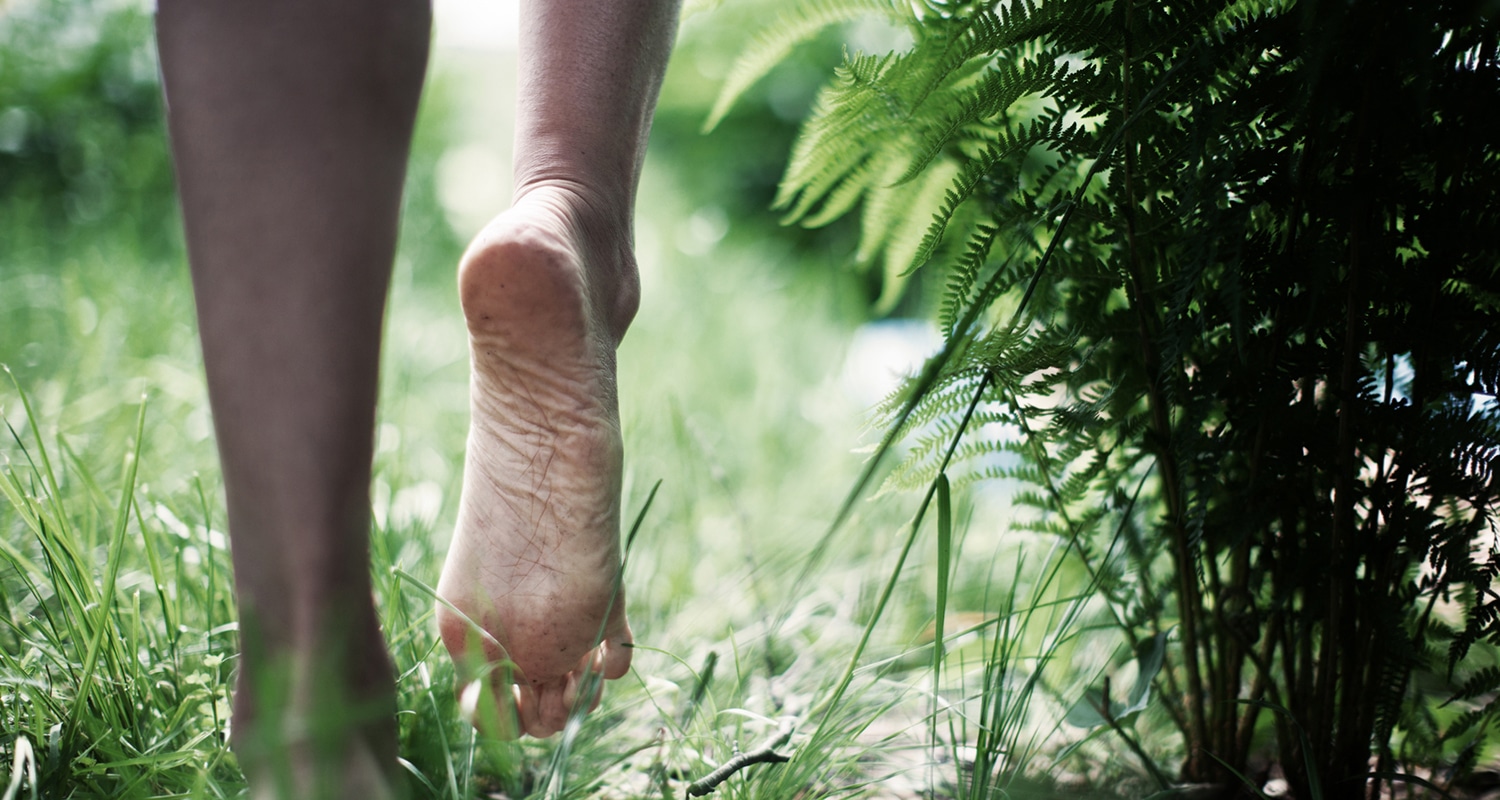
Read more about grounding, or earthing, here
There isn’t much science to back up grounding, but I heard that it helps with jet lag and I had a few minutes after a flight, so I figured I had nothing to lose by trying it out. I went to a park and walked around barefoot in the grass for a few minutes. I felt better almost immediately.
That could have been a placebo effect, so I set up a double-blind N=1 study to see if grounding impacted me. I find it consistently improves my sleep, and it has become one of my go-to hacks for jet lag.
I don’t know why grounding works, but it makes a meaningful difference in performance. Give it a try next time you fly. The worst case is that you spend a few minutes barefoot in a park or in nature, enjoying your destination.
These jet lag hacks will make a profound difference in the way you feel when you travel. Give them a try; you’ll feel the difference. Thanks for reading and stay Bulletproof.
Read Next: 4 Ways to Hack Your Next Flight


